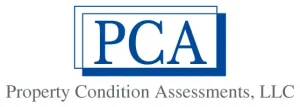
USEPA RELEASES FOR PUBLIC COMMENT
PROPOSED MAXIMUM CONTAMINANT LEVELS
FOR PER- AND POLYFLUOROALKYL SUBSTANCES
On March 14, 2023, the United States Environmental Protection Agency (USEPA), released for public comment a proposed National Primary Drinking Water Regulation (NPDWR) proposing maximum contaminant levels (i.e., enforceable levels) for several per- and polyfluoroalkyl substances (PFAS). The USEPA is also proposing non-enforceable maximum contaminant level goals (i.e., the maximum level of a contaminant in drinking water where there is no known or anticipated negative health effects) for the same PFAS. The USEPA anticipates finalizing the proposed NPDWR by the end of 2023.
PFAS are synthetic organofluorine chemical compounds that have been in use since the 1940s. PFAS are known to persist in the environment and are commonly described as persistent organic pollutants, also known as “forever chemicals.” According to the USEPA, there are more than 10,000 PFAS chemicals. PFAS have numerous economic uses including stain repellants, polishes, paints, coatings, food packaging, cosmetics, and infant and children’s products. PFAS have known toxicity affects to humans such as hypercholesterolemia, uncreative colitis, thyroid cancer, testicular cancer, kidney cancer, and pregnancy-induced hypertension and preeclampsia.
Federal governmental agencies (i.e., USEPA, Food and Drug Administration, etc.) and state governmental agencies are promulgating regulations for the control and phase out of PFAS. There are an estimated 26,000 PFAS-contaminated sites across the US and scientists have estimated that at least six million Americans have PFAS-contaminated drinking water above the existing safe limits recommended by the USEPA. On December 27, 2021, the USEPA published a regulation requiring drinking water utilities to conduct monitoring for 29 PFAS compounds.
The most likely source of PFAS at a property would be the drinking water. PCA can assist owners, lessees, and prospective purchasers in evaluating the drinking water source for their Subject Property. Moreover, PCA can conduct sampling of private potable water systems to determine the presence of PFAS in the drinking water and whether there are exceedances NPDWR.
PCA is committed to keeping its clients informed of the most up-to-date regulations and standards in connection with the assessment of commercial real estate and real property. If you have any questions regarding the potential occurrence of PFAS in the drinking water at your Subject Property, then please contact us.
Contact: Dania Phillips, Executive Vice President
D: (626) 685-9560 ext. 202 or email: dphillips@pcallc.com


